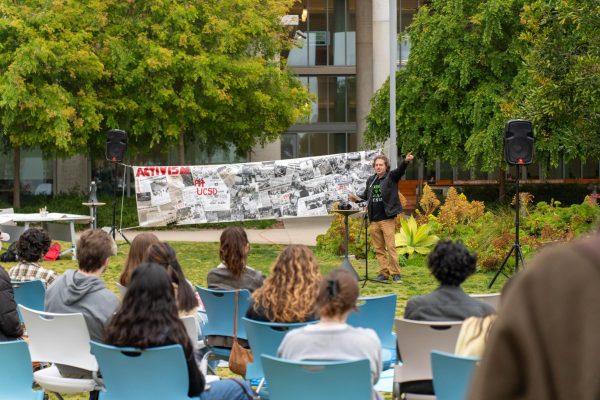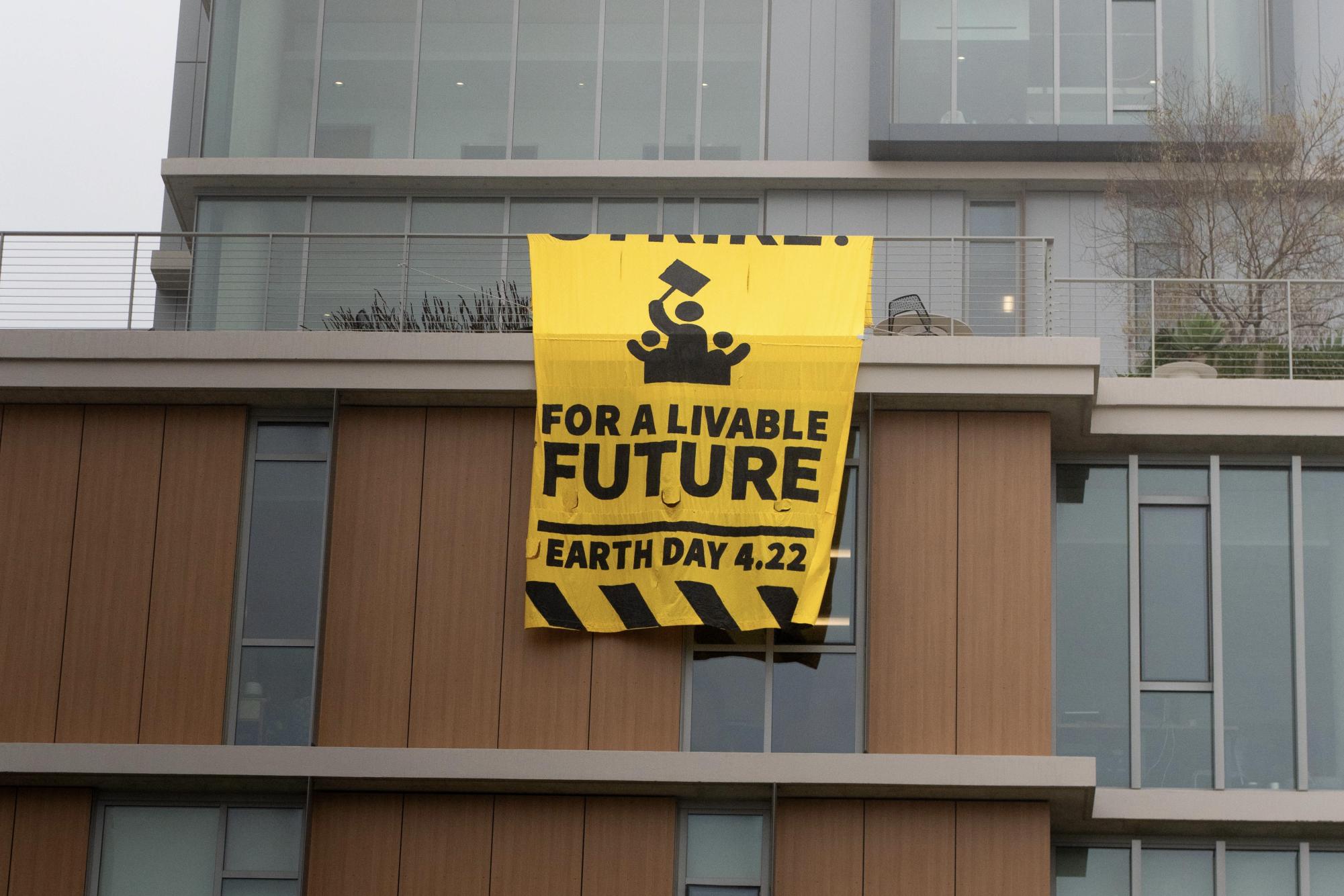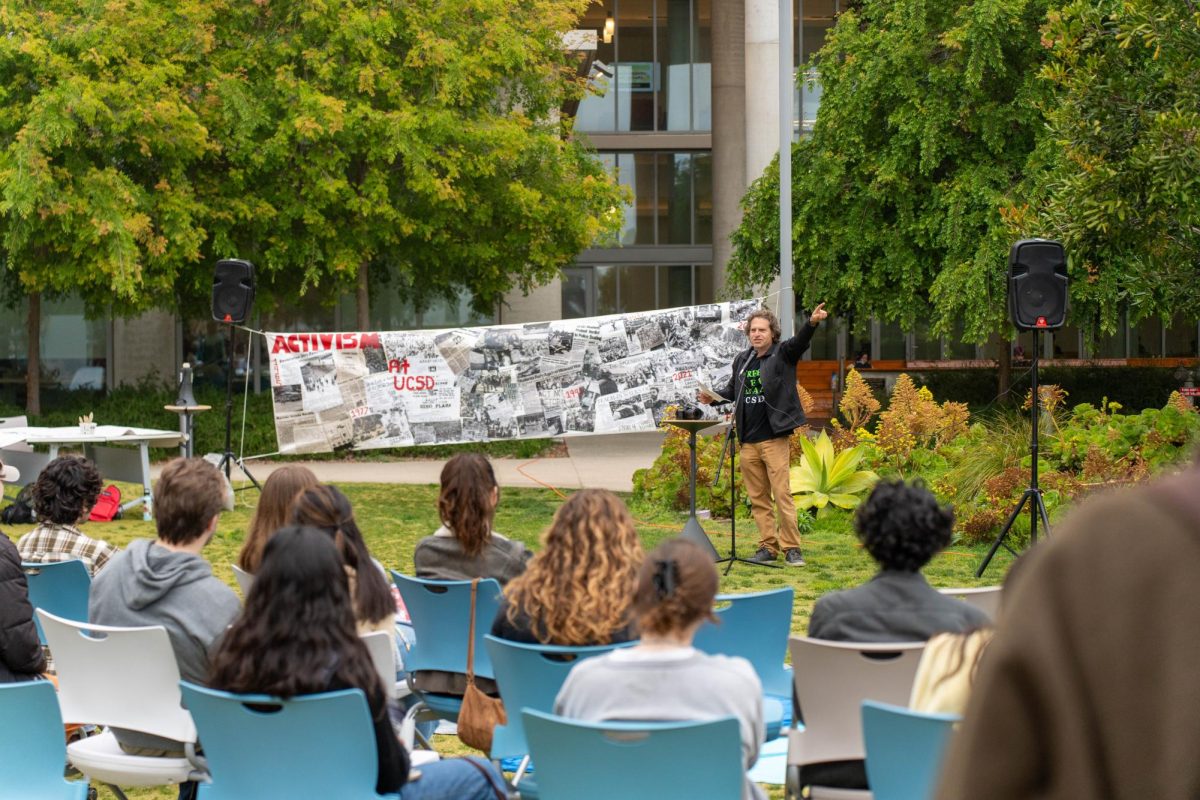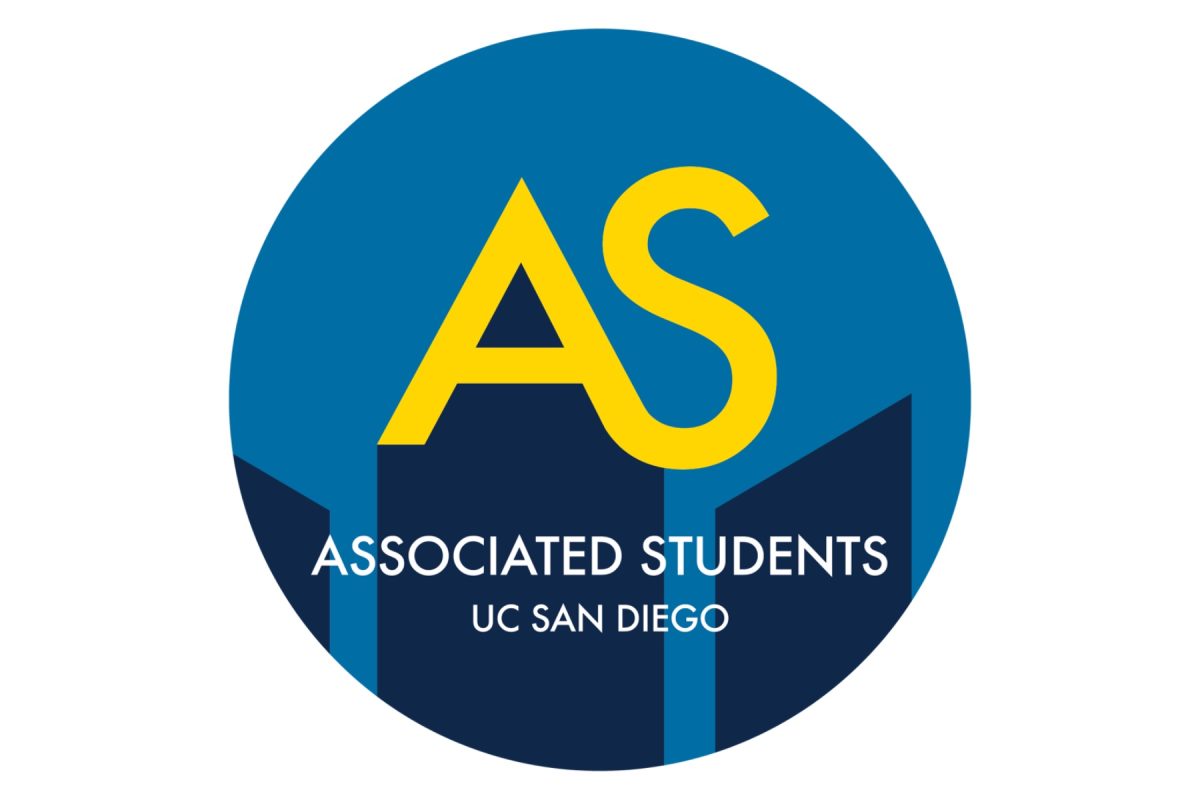Editor’s Note: This article includes possibly triggering themes, including suicide.
Green New Deal at UC San Diego organized an Earth Day teach-in, “Reclaim Earth Day,” on April 22. The teach-in’s goal was to raise awareness of the intersectionality of the climate crisis and bring students together to take action.
Green New Deal at UCSD, a unified body of students and faculty advocating for climate justice, collaborated with several prominent advocacy groups on campus for the event. These groups included Students for Justice in Palestine at UCSD, Students for Socialism, and USAS Local 619. Mini-lectures and workshops happening throughout the day shed light on crucial issues, such as the environmental effects of the conflict in Palestine, and educated students on how to identify their role in climate action.
Green New Deal at UCSD organizer Megyn Horton criticized the corporate greenwashing associated with Earth Day.
“Earth Day is for us, not for the corporations or the greenwashing. It’s for us to come together in solidarity, in coalition,” she said. “We can’t have environmental justice without racial justice, without justice for Indigenous people, people of color, of marginalized communities. Students have more power than we sometimes think we do.”

“They distract from the real issue and they tell us that participating in Earth Day or being an activist, working towards meaningful change is something like making sure you turn off the lights or switching to paper straws, which are all important things, but that’s not the root of the problem,” Horton added. “The root of the problem is the fossil fuel industry and everything that goes along with it.”
An anonymous SJP member started the event with a brief lecture, shedding light on the environmental effects of the conflict in Palestine and Israeli offenses on those in Gaza.
“They are depleting our aquifers by using it on lettuce, which doesn’t belong,” she explained. “It’s causing major problems to the land all throughout Palestine and occupied Palestine because they’re depleting the aquifers so much sinkholes start to pop up all throughout the land.”
The SJP member went on to express her concern for the environmental destruction in her home country.
“It’s definitely frustrating and it kind of breaks the spirit because being from [Palestine,] the land of olives and knowing what it means to us; seeing hundreds of years of tradition and culture being wiped out in instants kind of makes you want to lose hope,” she added.
The speaker wrapped up her speech with remarks on how the ongoing conflict in Palestine impacts all of humanity and Earth as a whole.
“How many more trees do we need to see burned down? How many more villages do we need to see destroyed? How many more countries do we need to see destroyed by American imperialism, and imperialism in general?” she asked.
“I know we might not feel the consequences of what Israel is doing right now, but we sure as hell will because this is one Earth, one planet,” she said. “And we feel all their seismic action recorded based off of the sheer amount of bombs that are being dropped on that tiny strip of land. We’re going to feel it whether it be now or later.”
USAS member Gurleen Kaur spoke afterward. Kaur’s lecture centered on the privatization of the food market in Punjab and its effects on farmers. In the 1960s, the Green Revolution was brought to Punjab, enhancing farming with new technological advancements. These innovations’ use of pesticides and chemical fertilizers harmed the environment and caused the exploitation of farmers. Further on, local farming was replaced with industrial agricultural businesses for mass food production and an increase in profits.
“Every 30 minutes, one farmer in India commits suicide. In 2021, 10,881 committed suicide, and the number keeps increasing,” Kaur said. “We are not guaranteed equity and equality until we demand it. So let’s stand with our farmers and laborers in Punjab in India and the workers around the world to show the government the power of the people.”
The event continued with a mini-lecture from Erin, a member of Jewish Voices for Peace at UCSD, who discussed Passover and the intersectionality of climate justice.
“The intersection between the climate crisis and oppressed groups is very large. Those in power use and abuse the Earth, natural resources, and other humans,” she said. “The repercussions of their actions are unfairly placed onto all of us to fix.”
“All of these crises are interconnected. Never forget as you fight for a free Palestine, you’re fighting for a reclaimed Earth,” she added. “As you fight against climate change, remember the indigenous communities that have cultivated the land that you stand on.”.
“We want our hard-earned tax dollars not to fund genocide, but rather to be invested in supporting humanity through universal healthcare, social programs, and saving our planet. For this Passover, we ask for a liberation,” Erin said as she ended the lecture.
The first half of the event concluded with workshops led by members of Green New Deal at UCSD on how to build a campaign and take part in direct action organizing. Topics discussed included the idea of power mapping, identifying your allies, and how to strike change through conversations and action.
UCSD professor and Green New Deal member Adam Aron explained that to address the issues we face with climate change today, we must confront the root of the problem: capitalism.
“We are almost certainly now in the beginning stages of climate breakdown,” Aron said. “How bad this gets and how fast this gets depends on what we do right now together.”
Leslie Meyer from Faculty for Justice in Palestine kicked off the second half of the event with a presentation on ecocide in Gaza. Ecocide is the intentional destruction of the environment by humans.
“Ecocide existed long before it received its name, as how else would you describe the destruction of the environment caused by the invention of the petroleum industry?” Meyer said. “Or before that, the harm caused to the very ground beneath our feet, ever since it was stolen from the Kumeyaay people to be later transformed into US military land…and finally in 1960 to become a university geared to the education of an elite few.”
Meyer went on to discuss UC San Diego’s ties to the military and the involvement of campus scientists in research projects funded by the Department of Defense. This investment in research aims to address challenges to our nation’s defense.
“The Department of Defense announced a $221 million allocation towards basic defense-related research projects and among them, four have UC San Diego researchers and scientists as either leaders of a team or part of a team,” Meyer said.
“These relationships are significant to a discussion of ecocide because the Department of Defense is the single largest consumer of energy in the U.S. and the world’s single largest institutional consumer of fossil fuels,” she added.
“What hope for Earth is there in a situation like this?” she asked, concluding her mini-lecture.
Following Meyer’s lecture, more workshops were held, including Students Against Mass Incarceration’s workshop to educate students on their rights during protests, especially with contemporary issues revolving around protests at other institutions across the nation.
The last lecture was by Students for Socialism member Logan Ham, who emphasized the dominion of the fossil fuel industry and the lack of progress in reducing emissions.
“In Biden’s first three years, his administration approved only 2% less drilling permits than Trump’s in the same time. President Biden has pledged to cut U.S. emissions in half by 2030, but the rich and powerful fossil fuel industry is embedded in our institutions,” Ham said. “The fossil fuel industry uses its money and influence to defeat climate action and protect fossil fuel interests.”
“The fossil fuel industry uses its money and influence to defeat climate action and protect fossil fuel interests. It uses tactics like greenwashing and astroturfing, also known as lying, to pollute information channels,” he added.
“We don’t want your fake solutions, we are sick of your pollution,” the crowd chanted as they gathered on the Sixth College lawn at the end of the event.
When asked about the change on campus made by the Green New Deal at UCSD and their goals for the future, Horton said, “So far the Green New Deal has seen the implementation of the new climate justice general education requirement…We’re going to keep going, and we just need people to keep showing up and get involved because it takes all of us to win.”
“All justice is intersectional. And while the obstacles we face are large our goals and visions of the future are attainable when we all come together,” she added.










